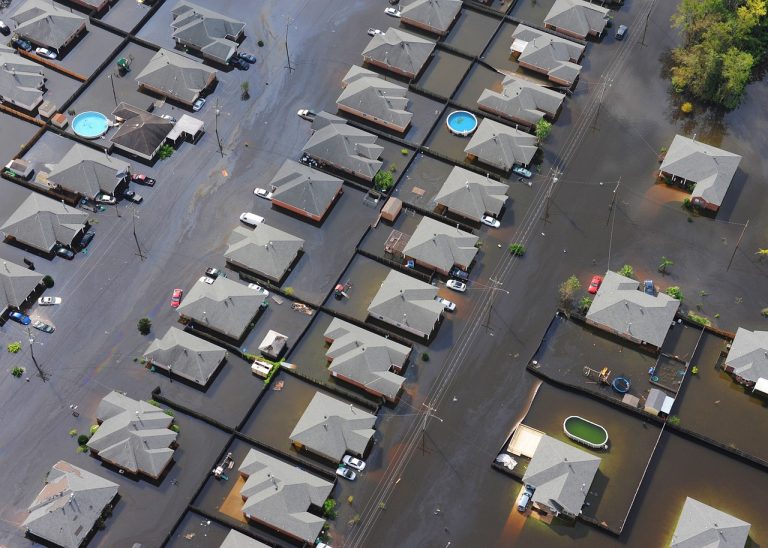Whether you live in one of the states hard-hit by Hurricanes Harvey and Irma or not, it’s difficult to ignore what a natural disaster might mean for your home and mortgage. Mother Nature is not shy about showing us the devastating power of hurricanes, floods, and earthquakes. Catastrophic events can happen anywhere at any time, which is why it is important to be prepared and to take steps to protect your property from costly damage.
Prepare for the Worst: Insurance
Wind and water can be destructive forces that can leave your home in ruins, so the first step is to ensure that you are adequately insured before anything happens. If you live in a flood-prone area and have a mortgage on your home, federal law may require you to carry flood insurance. Flood insurance from the National Flood Insurance Program is only available in participating communities. Find out whether your community participates in the NFIP by contacting your insurance agent.
Who to Talk to in the Aftermath
Your first few phone calls matter. The Federal Emergency Management Agency (FEMA) should be at the top of your list if your home is in a declared disaster area. You can register with FEMA online, in person at a disaster recovery center or by calling 800-621-3362. Next have a chat with your homeowner’s insurance company, plus your flood or earthquake insurance company, if either applies to your situation. Don’t forget your mortgage servicer. That’s the company that you send your monthly payments to; it might not be your original mortgage lender. You should also update your local lender about the claim because your property acts as collateral for your loan.
Try to Keep Up with Your Bills
Continue to pay your bills, including your mortgage. Contact your mortgage servicer and explain your situation, but know that damage probably won’t stop your payments. While the Federal Housing Administration (FHA) guides lenders to offer a 90-day foreclosure moratorium on properties within a federally-declared disaster area, late payments can still cost you fees and negatively impact your credit score. The FHA recommends that mortgage servicers consider waiving late charges for homeowners affected by natural disasters, but some may still charge you. If you don’t think you’ll be able to pay your utility bills for that month, contact your service companies and explain your situation. If your home was severely damaged, you could ask to suspend your service if you cannot live there as you clean up and rebuild. This groundwork will also help reduce expenses as you assess what to do next.
Homeowner Assistance
FEMA will usually provide homeowners with assistance through three programs: individual assistance, public assistance, and hazard mitigation. Individual assistance can include multiple aspects, such as disaster housing, which may be available for up to 18 months following the incident, and disaster grants and loans. During the repair process, FEMA pays for part of the funds for damage mitigation measures to make sure that the public is safe. This may mean relocation for disaster victims while the community is being rebuilt.
Mortgage Assistance
Some mortgage servicers may waive fees and offer breaks on loan payments in the wake of a disaster. If you have a VA loan, there are special steps to take. Mortgage giants Fannie Mae and Freddie Mac both have mortgage relief options for homeowners affected by natural disasters – if the loans are owned by either GSE. Eligible homeowners who are having trouble paying their Fannie Mae- or Freddie Mac-owned mortgage may qualify for:
- Forbearance to temporarily suspend or reduce mortgage payments
- No late charges for missed payments
- No reporting of missed payments to credit bureaus while payments are suspended
- A loan modification to avoid a burdensome repayment or higher monthly payments after a forbearance
- Possible suspension of legal proceedings (i.e., foreclosure)
Rebuilding or Re-buying
If your home is destroyed, you may have to start over with someplace new. Individuals whose home has been destroyed or severely damaged in a Presidentially-declared disaster area are eligible to apply for mortgage insurance under the Section 203(h) program. This program provides mortgage insurance to protect lenders against the risk of default on mortgages to qualified disaster victims. It allows the FHA to make it “easier for individuals to get mortgages and become homeowners or re-establish themselves as homeowners.”
Beware of Scams
Don’t let scammers take advantage of you, your situation, your house or your money. Scam artists are stealing millions of dollars from distressed homeowners by promising immediate relief from foreclosure, or demanding cash for counseling services when it’s free. If you receive an offer, information or advice that sounds too good to be true, it probably is. HUD-approved housing counseling agencies can help you negotiate with your lender or loan servicer. There is never a fee to get assistance or information from your mortgage company or a HUD-approved housing counselor. While some fee-based counselors are legitimate, be sure you know that free counseling is available and may be most suitable for you. Call 888-995-HOPE (4673) for free housing counseling.
If you have questions about how to be better prepared for anything that might affect your home and mortgage, Capital City Home Loans is here to help you. Our goal is to be a true partner and advisor, providing exemplary service from the first conversation to well beyond the closing table. Capital City Home Loans is about far more than being a trusted full-service lender that offers a suite of mortgage financing options like FHA, VA, conventional, jumbo and portfolio products. By offering a growing inventory of mortgage finance products and empowering our associates to help each and every client choose the best options, we are focused on being the best and strongest lender in the Southeast. Please contact us here. We look forward to assisting you.

